Jenny Diski, who has died of cancer aged 68, was a writer for whom no subject was taboo. Her remarkable first novel, Nothing Natural (1986), about a sadomasochistic affair, was feted and damned in equal measure. It has a quality that persisted in all her work: a refusal to censor, a breezy determination to keep it real (whatever “it” turned out to be). She was the least deceived writer imaginable, and she was never complacent. She once said she wrote each new book out of a feeling that the one before had been a failure. She did not stop her zestful experimenting: 11 novels, two collections of short stories, memoirs, travelogues and essays. Each book was a new departure, but she is likely to be best remembered for her nonfiction.
In her idiosyncratic travelogue Stranger on a Train (2002), she intriguingly linked crossing the US by rail with escapist journeying in her youth on the Circle line of the London underground. In 2009, with The Sixties, she pulled off an unhackneyed account of the decade – sex, drugs, rock’n’roll, and Aldermaston marches. But her memoir Skating to Antarctica (1997) is the most remarkable of her books. It stars her daughter, Chloe, who steers Diski into finding out what became of her mother, with whom relations had been severed for decades. The narrative alternates startlingly between a trip to the frozen south and this search – Diski’s reluctant advance towards catharsis.
Whatever she was writing, Diski was her own woman on the page, incapable of sounding like anyone else. Her columns in the London Review of Books – free-ranging sorties into subjects as various as happiness, South Africa, social psychology, knitting, old age and cats (she had a feline side) – were virtuoso performances. She was original, opinionated and wayward. In the LRB, writing about her diagnosis with inoperable cancer, she brazened it out: “Under no circumstances is anyone to say that I lost a battle with cancer. Or that I bore it bravely. I am not fighting, losing, winning or bearing.” The columns that followed were collected in In Gratitude (2016). She knew how to use her life as copy, and her self-commentary had a gallantry to it. It required her to take a step back, and write with a willed casualness about her past, as if on the brink of disowning it. “I start with me and often enough end with me,” she wrote.
She was born Jenny Simmonds (Diski was an invented name, adopted on her marriage, which she said described her most accurately) and grew up in London, the only child of working-class Jewish immigrants. Her father, James Simmonds (ne Israel Zimmerman) was a black-marketeer. When she was six, he temporarily deserted her mother, Rene (nee Rachel Rayner), who suffered a breakdown and Jenny went, for a couple of months, into foster care. Her father reappeared, but when the money ran out, he ran out with it – this time for good. Jenny was 11. Her mother struggled to keep up appearances. Diski described being obliged to wear white gloves for show even after the bailiffs had been and gone. They were left in an empty flat in Tottenham Court Road with a bed and a single chair.
It was only as an adult that she learned from former neighbours that her father, as well as being a “charmer”, was a conman, a wooer of wealthy women. He had done time in jail. Little wonder her accounts of her mother describe a non-coper given to hysterical self-pity. But self-pity is something to which Diski, in her writing, never gave way. She was more likely to lean towards black comedy. In Who’s Who, she turns her entry under “Recreations” into a gag of sorts: “Taking baths, middle-distance staring, pain management.”
After the family fell apart, she traced her father to Banbury, Oxfordshire, and had an unsettled stint with him and his new woman, Pam. Aged 15, she was sent by social services to St Christopher’s, a progressive boarding school in Hertfordshire, but was expelled after a couple of terms for climbing out of a first-floor bathroom window to go partying in town. Two days later, from her mother’s small flat in Hove, East Sussex, she was admitted to “my first psychiatric hospital” after overdosing on her mother’s Nembutal. Throughout her adolescence, there were returns to psychiatric hospitals, waystations to adulthood.
It was at St Christopher’s that she met Peter, son of the novelist Doris Lessing. He was not a close friend but, a considerate boy, he told his mother about his classmate’s predicament, stuck in what Diski referred to as “the loony bin” and asked for his mother’s help. Diski used the second essay in her LRB “cancer” column to remember her relationship with the great novelist, who unofficially adopted her. Lessing was tremendously influential in modelling a writer’s life – the long hours at the desk – for her unexpected lodger. And when Diski started writing, she lived up to Lessing’s industrious example. She learned: “Being a writer meant: getting on with it.”
Yet she did not become a writer straight away. She started but did not finish an anthropology degree at University College London and then trained (alongside Ken Livingstone) as an English teacher. She part-founded and taught at Freightliners free school (1972-73), for children who had dropped out of the system, and taught at Haggerston comprehensive (1973-77) and Islington sixth-form centre (1980-84).
In 1976, she married Roger Diski (ne Marks; they concocted the surname and the free school together), and Chloe was born in 1977. Their friendship survived beyond the marriage, until his death in a drowning accident in 2011. In 2008, she married Ian Patterson, translator and Cambridge academic (the man she used to refer to in her writing as “The Poet” and “soppy old radical versifier”). In a blog, Diski declared an ideal relationship with a man “would involve conversations about books, ideas and being quiet together. That is how it is in my current relationship, but I waited 50 years for that kind of equilibrium.”
The critic Nicholas Lezard has described Diski as one of our “great, if under-appreciated, stylists”. And it is true that she was at home with language, even when her subjects were depression, withdrawal, extinction. All these she was able to transcend in words. In Skating to Antarctica she wrote this extraordinary paragraph about depression: “But given that depression happened to me, and I did have support, I found it was possible after a time, to achieve a kind of joy totally disconnected from the world. I wanted to be unavailable and in that place without the pain. I still want it. It is coloured white and filled with a singing silence. It is an endless ice-rink. It is Antarctic.”
Diski is survived by her husband and daughter.
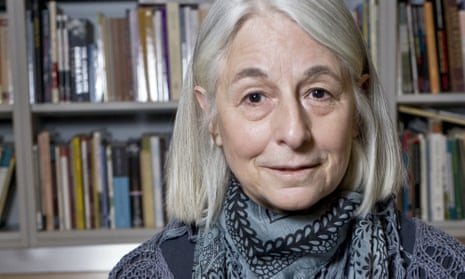
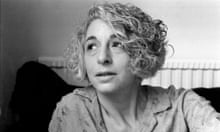

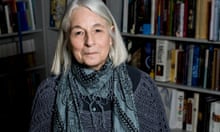
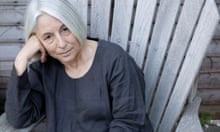
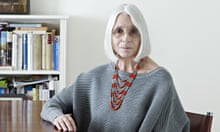

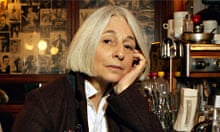
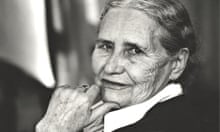
Comments (…)
Sign in or create your Guardian account to join the discussion